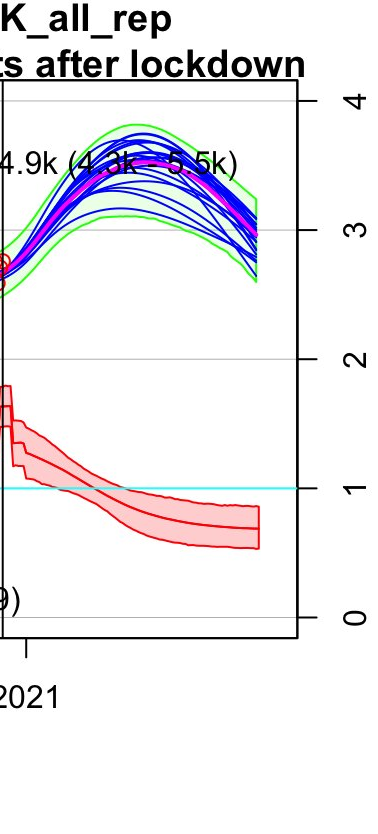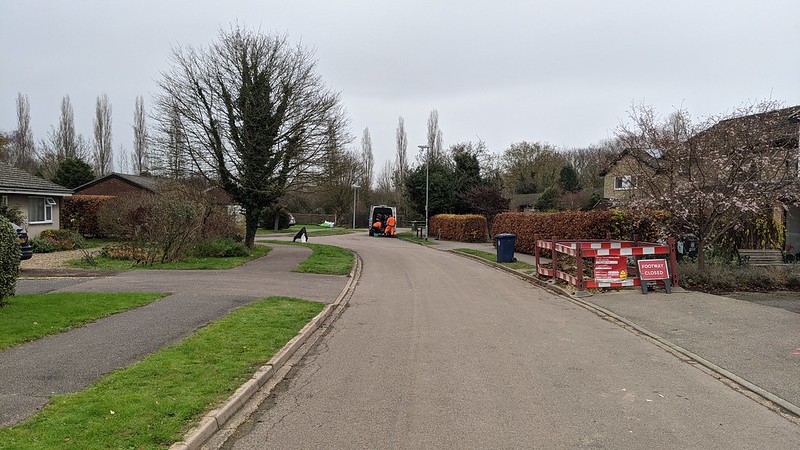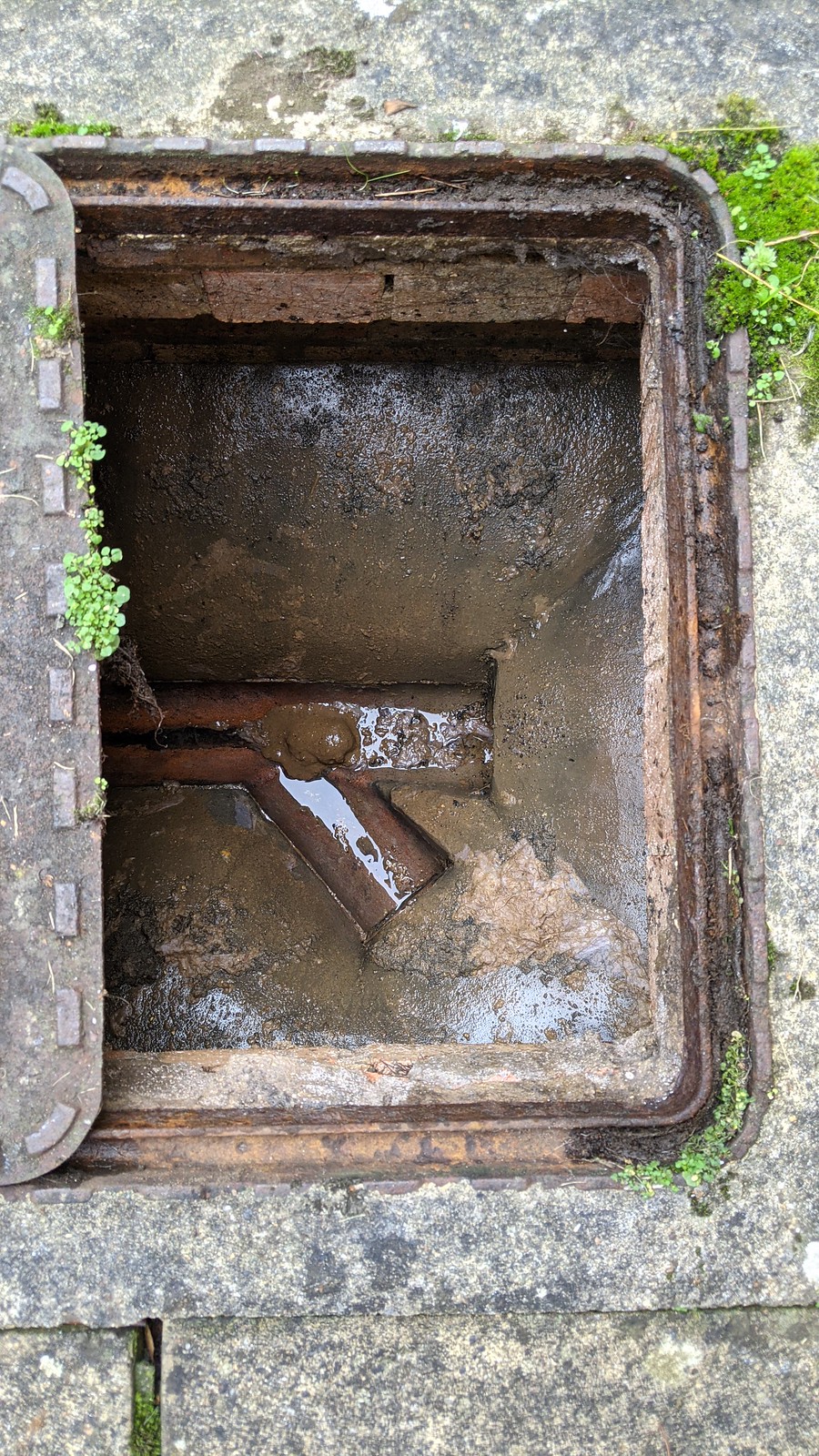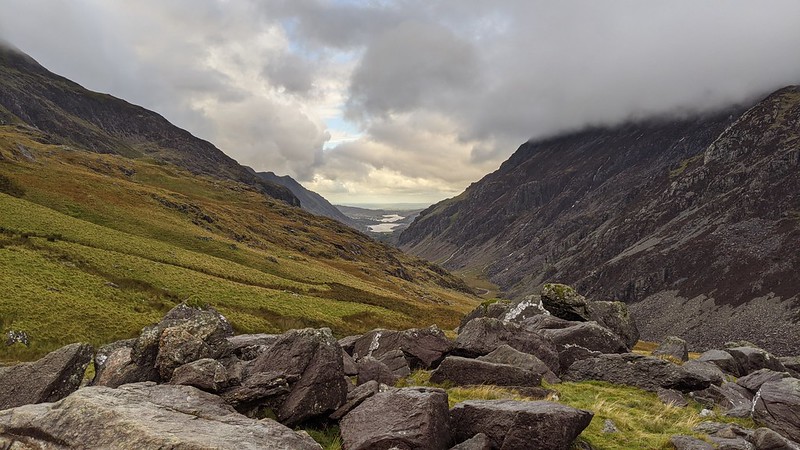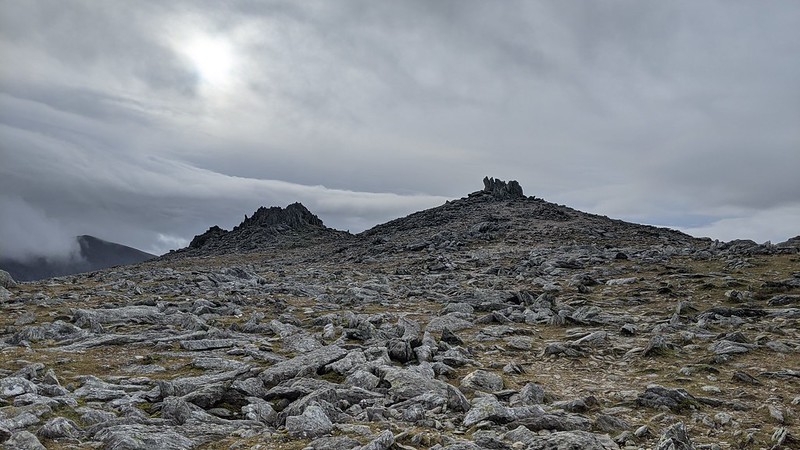 Yes, it's P. A. M. Dirac's infamous scifi saga... while I'm here, don't miss Consider Phlebas, arguably a better book.
Yes, it's P. A. M. Dirac's infamous scifi saga... while I'm here, don't miss Consider Phlebas, arguably a better book.Wednesday, 23 December 2020
Book review: Look to Windward
 Yes, it's P. A. M. Dirac's infamous scifi saga... while I'm here, don't miss Consider Phlebas, arguably a better book.
Yes, it's P. A. M. Dirac's infamous scifi saga... while I'm here, don't miss Consider Phlebas, arguably a better book.Testing... multiple images without borders
Tuesday, 15 December 2020
Alas poor C5, I knew it well
We've just given up our last C5, so here is a post-of-record to mourn its passing and replacement by a Passat. In summary it was a good car, but fragile.
We had four C5's over the years. The first, cloud-grey, was our first decent car and our only from-new car. It replaced a second-hand red Citroen BX that I gave away to someone at work. Here we see that BX having its rear window repaired; here's another view.

Miriam bought the C5 in the flush of the dotcom boom, or thereabouts. It was a marvel: it had air conditioning - indeed, it had climate control, a distinction we didn't know about until later - and all sorts of other nice stuff (oh yes: the glass in the tailgate could be lifted separately, wonderfully useful for loading for holidays). It cost about £13k, partly cheap because discounted as the first of its class and Citroen were promoting it. AF51 UXO. At least briefly, we even cared about it: Miriam bought it a fire extinguisher, to be good, and we put a blanket on the back seat to preserve the seat from the children.
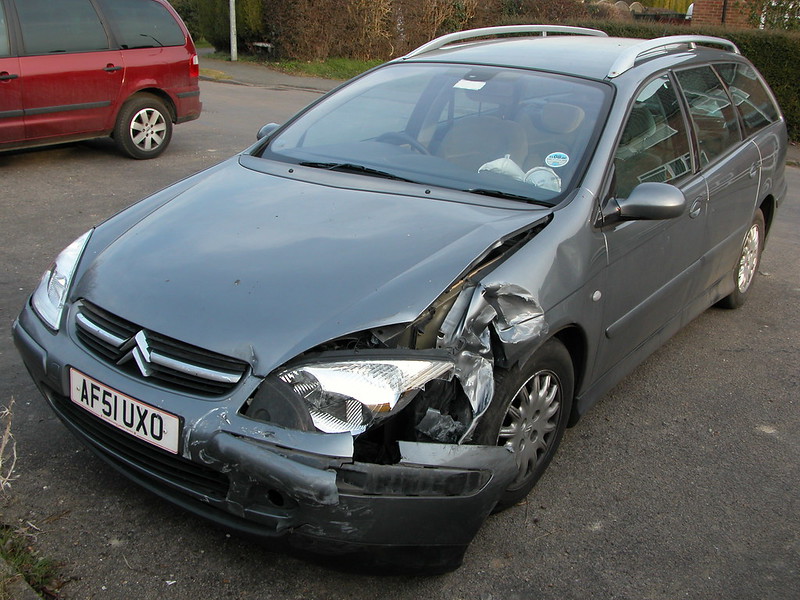
Alas it got pranged - see pic - by someone changing lanes badly while E and I were coming back from picking up kitchen parts from Ikea in Milton Keynes. Here it is in happier times - this will be one of the times I took D, E, N and P to the Norfolk coast around Old Hunstanton.

That prang, and the results, was a nasty shock: although the car didn't seem, superficially, badly damaged it was a write-off (as far as the insurance were concerned) because (a) the front crumple zone, whilst really good at crumpling, is rather hard to un-crumple; and (b) the air bags had gone off, and are expensive to replace. So, we took their cash and bought a private second-hand C5 in deep blue, RX04 MKD. It was in decent condition and spec, and cost £8k cash. That's what went to Kerouini in 2007, and it must have lasted a while, because here it is in 2012:

That's with Joy-the-scull at Boston on the top on my cunning James-aluminium-ladder-roofrack, because i was too cheap to buy a real one. and anyway, the ladder was better, because longer; and a couple of wooden beams made a decent rack. Regrettably (I think I'm recalling this right) I managed to trash that one by driving into some idiot who stopped abruptly at the entrance to a roundabout. Again, the glass nose came into play.
So we replaced it - in something of a hurry - with a rather cheap (£2k) not very high spec silver C5, whose sole virtue was that it had a towing hook. Which was rather useful as we were going to lots of regattas around then.
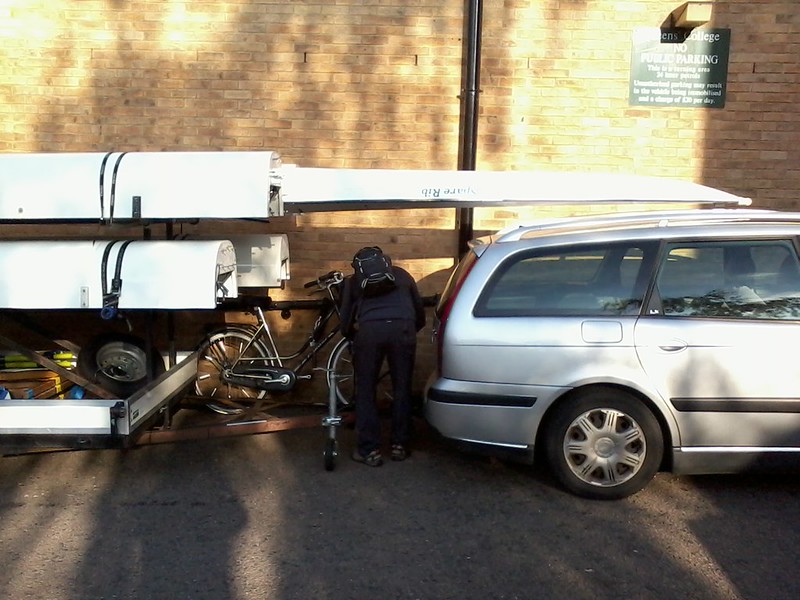
This didn't have the lifting rear glass. Nor did it have alloy wheels, oh the shame. It didn't even have electric rear windows. And it didn't have climate control, it had crummy air conditioning. Meh, it worked. For a reasonable length of time. But then, something went wrong - and I forget exactly what - something to do with the ABS system (possibly, now I think of it, prophetically, the ESP bit) - and fixing that would have bene more than it was worth. So... we got a decent (and decent spec: our first SavNav, and Bluetooth. Funkily, the wing mirrors folded when it was locked, which was great for telling form a distance that it was locked) blue C5 (new model) for about £9k; YN13 NHH. This, being the new model, didn't have the pneumatic suspension. Here it is, in 2018, at an alpine pass, on the way back home (see here for the Dolomites segment).
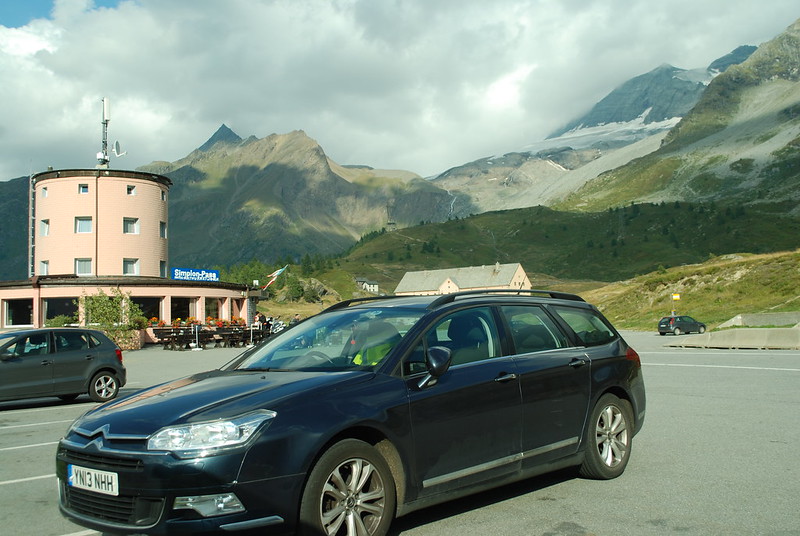
And this too was a good car... until it stopped being good, and the ABS / ESP started playing up. And despite the best efforts of the garage, they couldn't fix it, and we lost patience - after a long time, mind you - and with regret (because it was 99% perfectly functional, and the non-functional bit really wasn't important, but was able to prevent it starting if it got uppity, gave it up as scrap. See-also Wales: Caernarfon, and the hills beyond.
In all of our C5's the engines have worked flawlessly and they've driven fine and all of that.
So, here's the Passat MJ67 DDF. Second-hand, 43k on the clock, £13k, from Cazoo. Vignette: Rob, spotting the Cazoo sticker in the back: "you mean you actually bought this from Cazoo? I couldn't imagine the sort of person who would do that". Because he is a car-owning sort of person that would like to feel his car before buying it. To be fair, we'd driven Mfd+J's Skoda estate, which is similar.
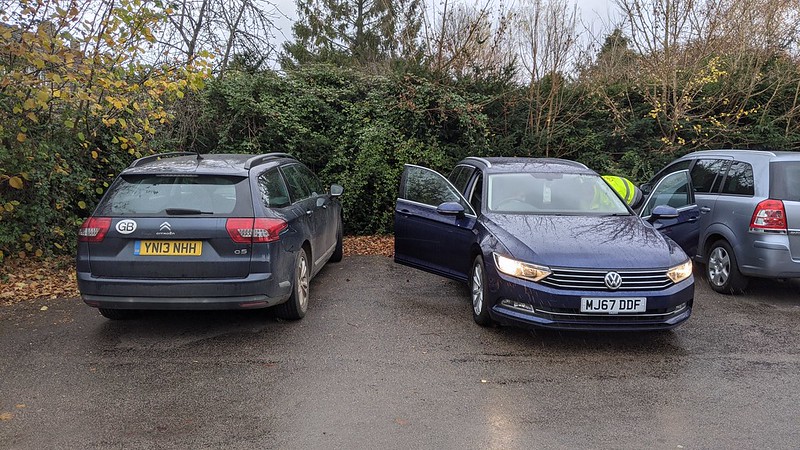
Its OK. It has 6 gears, but is - to my current tastes - somewhat weirdly geared. I can stall it in first and second without much trouble. It has "keyless" which I haven't got used to yet. The roof bars are odd. It has crummy AC not climate control. Miranda, when she first saw it, asked it is was from-new, because it was so clean, and she hadn't realised anything but a new car could be that clean. It still fits a bike in the back. It has no handbrake, instead it has autolock, which is probably good, but feels weird.
Refs
Thursday, 10 December 2020
Howard Zinn: A People's History of the United States: part 2
Don't miss part 1, which covers chapters 1-12. The text is here.
Chapter 13: the Socialist Challenge
One of the themes of this book ought to be - in my humble opinion of course - how easily "the people" are tricked by the Evil Capitalists. Perhaps HZ is indeed subtly doing this, by providing example after example of people falling for it, and never learning anything from the past. But his method of doing this is odd. He does provide a lead-in quote: "But when... the cost of the war came back to the people in an increase in the price of commodities.. it suddenly dawned on us that the cause of the Spanish-American war was the price of sugar". Did it occur to him or anyone else that a lesson from this is that tariffs are a really bad idea and they should be opposed? No, of course not, that's far too "economic theory" for him and them.
HZ is concerned that everything is bad and always getting worse; in this age-of-gold thinking he is following the fascist Plato: In the face of the facts that modern man lives more wretchedly than the cave-man and so on; but this is of course nonsense.
The theme of the chapter is socialism and, I think he would like to give you the impression, the glorious successes thereof. And this is demonstrated by a succession of strikes and revolts against poor conditions, lovingly detailed over pages, which invariably end rather abruptly with The conditions in the factories did not change much or equivalent. He does not find space to notice that over time the conditions in the factories have indeed improved. In part 1 I noted that the strikes invariably falied because they had such a limited programme; in this chapter we meet the IWW who did not have such limited ideas, they hoped workers would take power, not by seizing the state machinery in an armed rebellion, but by bringing the economic system to a halt in a general strike, then taking it over to use for the good of all. Alas for them, the degree of bravery-in-thinking required to push for such thinking only exists in a very few people, so it wasn't popular. FWIW I'm doubtful it could work in an industrial society; the interconnections are too complex.
I think that Socialism moved out of the small circles of city immigrants-Jewish and German socialists speaking their own languages-and became American is probably whistling in the wind. I do believe There was almost a religious fervor to the movement, but I don't think that's a good thing.
Why do the plebs fail to cast off their shackles? HZ does know the answer. Undoubtedly, ordinary people benefited to some extent from these changes. The system was rich, productive, complex; it could give enough of a share of its riches to enough of the working class to create a protective shield between the bottom and the top of the society but he can't hold the thought for long; a few paras later we have Fundamental conditions did not change, however...
Chapter 14: War is the Health of the State
World War One. The USA was late to the party, and you won't find that discussed by HZ. Nor will you find much in the way of discussion of causes: The rhetoric of the socialists, that it was an "imperialist war," now seems moderate and hardly arguable says he; but I do indeed argue; a better description is a pointless accidental war that no-one wanted. HZ links the USA's entry to effects of its interest in global trade. As usual, HZ's theme is envy: but did the workers in the steel plants gain as much as U.S. Steel, which made $348 million in profit in 1916 alone? Err, well: I doubt any individual work made $349 million. Did they in aggregate make more? We don't find out, because despite asking the question, HZ doesn't give a toss about the answer. It isn't a question; it is propaganda.
The Schenck v. United States case comes up. By modern standards, it was clearly erroneously decided. If you read wiki, you will discover that via Brandenburg v. Ohio. If you read HZ, you won't, who gives you the impression ("has been constantly in force since 1950...") that the problem still exists; perhaps his reading doesn't extend to 1969? No, of course not. the reason is that it's a nice thing. He doesn't want nice things. There was conscription, to which some but not enough people objected, and conscientious objects were treated badly. That's about it; he is no more interested in the course of the war than he was in his own civil war.
Chapter 15: Self-Help in Hard Times
Or, and better, post-WWI to pre-WWII. There were strikes, which never achieved their objectives due to not really having objectives, but are better thought of by analogy to "the concept of pressure" vs "individual molecules bouncing off walls". And so, in a process too complex to disentangle, things got better. Even HZ cannot fully ignore this: There was some truth to the standard picture of the twenties as a time of prosperity and fun. But fear not! Things, really, were grim: prosperity was concentrated at the top... only the upper ten percent of the population that enjoyed a marked increase in real income. It's a little bit like the GW deniers who draw the temperature series as a basically flat, by quietly ignoring the upwards bits.
More good things happen: Women had finally, after long agitation, won the right to vote in 1920... but don't worry, this too had its downside: not only was voting was still a middle-class and upper-class activity but also those pesky women didn't vote as they should have: "women have shown the same tendency to divide along orthodox party lines as male voters."
The Crash of '29 happens, and this is something maybe to write about sometime; needless to say the capitalist system was by its nature unsound: a system driven by the one overriding motive of corporate profit and therefore unstable, unpredictable, and blind to human needs. And he does note that Clearly those responsible for organizing the economy did not know what had happened, were baffled by it. Apart from the unconscious assumption that the entire economy requires organisation from above, he is largely correct; and std theory says the Govt / Fed made things worse. To HZ the solution is better organisation; I would of course promote a more Hayekian view. Things are bad, along comes the New Deal. Generally this gets a good rap from the std histories, but for HZ it was dominated by Big Business with just enough sop to the plebs to prevent them rioting. HZ notes that it was initially thrown out by the Supremes, but doesn't cover any of the subsequent excitement of it getting rammed through.
Moving right along, there are more strikes and so on, but it was rank-and-file strikes and insurgencies that pushed the union leadership, AFL and CIO, into action... moderate labor rebellion by channeling energy into elections-just as the constitutional system channeled possibly troublesome energy into voting... Factory workers had their greatest influence, and were able to exact their most substantial concessions from government, during the Great Depression, in the years before they were organized into unions. Their power during the Depression was not rooted in organization, but in disruption. I agree. Unions are easy to corrupt, easy to co-opt, and end up representing the relatively better off against the poor, the blacks, the women and the riff-raff. This is an important point, for any agitator; I'm surprised HZ doesn't make more of it.
Chapter 16: a people's war?
WWII is I think generally regarded as a popular war against an evil enemy; both of which points HZ accepts. But asking if it was a "people's war" seems odd. As for the Civil War and so on, HZ has no interest in the military conflict; the Normandy landings for example get less than a sentence. But during the war the US govt is planning for what will come afterwards, strangely enough. As someone said, Leadership toward a new system of international relationships in trade and other economic affairs will devolve very largely upon the United States because of our great economic strength. We should assume this leadership, and the responsibility that goes with it, primarily for reasons of pure national self-interest. The very last part of not altruistic, but I would defend it, in a Smithian "It is not from the benevolence of the butcher" way.
Trivia: in Catch-22, Yossarian is an officer, as I think are most of the characters. If I was going to questions HZ's narrative of a racist army with a sharp officer / men distinction, I'd compare it to civilian life.
Allied bombing raids in Europe: I think I already knew that the British night-time raids were indiscriminate. But I had though the US day-time somewhat more targetted. HZ disagrees, and wiki agrees with him; though with the proviso that the military impact may still have been significant. And, the US was implicated in Dresden too; I thought that was our mistake. Then we have the A-bombing of Japan and was-that-really-necessary. Here, there is a lot of second guessing, and I don't think HZ manages to add anything useful to all the words written over the years. I doubt I can, either.
After WWII is a rather confused period where things happen, including the Korean war, with McCarthy coming in and then we come to the Rosenberg's. An ugly episode, and HZ quibbles their conviction but as I read wiki the Venona decryptions of '95 make his involvement at the least clear; and HZ's problem is that he revised this book in '95, 98 and 99. There's anti-communist hysteria, and hysteria is bad; but so is communism.
HZ tells us At the start of 1950, the total U.S. budget was about $40 billion, and the military part of it was about $12 billion. But by 1955, the military part alone was $40 billion out of a total of $62 billion... In 1960, the military budget was $45.8 billion—9.7 percent of the budget. but these numbers appear to be a bit dodgy: according to a random internet site 1950 was 24 / 70 (34%) against 47 / 110 in 1955 (43%) and 53 / 151 (35%) in 1960. But nonetheless the % of military is much higher than I'd have guessed - driven, in a sense, by the lower-than-nowadays values for pensions, healthcare and education. Wiki has a useful graph.
It seems odd that the post-war "war on communism" doesn't deserve a chapter of its own. Various interventions - the 1953 Iran coup for example - happen, in retrospect setting the scene for decades of instability in those regions. And yet - I say this not to excuse it, but to try to understand it - the nationalise-the-oil-industry stuff has echoes of how the 2011 Egyptian revolution ultimately failed: too revolutionary, too-much-too-young. Perhaps this in turn has some inverse connection with the post Civil War reconstruction. And then, Cuba shows the USA's curious incompetence.
To be continued...
Well, I hope so. This isn't finished, you'll have noticed. Partly because I was finding it dull. Partly because I was disagreeing with almost everything, and not finding very much new, or much in the way of ideas. It is just very slanted history, and a piece of history I'm not desperately interested in. See-also some comments on the post on the first twelve chapters.
Continued and concluded
I'm not going to finish off chapter-by-chapter: I lack the inclination and I don't think it worth my while. There are a lot of words, I read most of them, I will remember few of them; there is clearly a lot of historical research; there are some errors that are a result of bias on HZ's part; I cannot raise the enthusiasm to find out how many; but I do not trust him.
I am put in mind of Gaitskell's Socialism and Nationalism: that fundamentally, HZ is wrong, and there is no rescuing him. What is he wrong about? One striking thing I notice is that things are always terrible1, and always getting worse; in this he resembles Plato's falling-away-from-the-age-of-gold; but he also (as I think I said before) resembles the GW denialists who convince themselves that the world is not warming by drawing graphs that are flat, or declining, except for a few anomalous jumps upwards, which they proceed to ignore. You will not find any graphs-over-time of literacy rate; or life expectancy; of calories-per-day; well, you won't find any graphs at all; it is all more anecdotal; which allows him to select his favoured view.
Why does he want to believe everything is terrible? I think mostly because people he doesn't like are in charge, and the system isn't one he favours, so obviously things must be getting worse - how else could it be? But also I think there's the std.marxist whip-up-the-workers type stuff: you need to convince the proles that their lot is terrible.
HZ is fundamentally a populist, much as Trump is, though on the opposite end of the left-right axis: in that he doesn't really believe in the rule of law. In his case, that is partly - and with some reason - from a feeling that the law isn't on his side; that the law favours rich over poor, and has betrayed the poor in the past. But the solution to that is to strengthen the law1. Examples from RBG of HZ's contempt for the law: he puts constitutional rights in scare quotes; he simply can't understand that the death penalty might be constitutional: to him, the death penalty is a Bad Thing, if he were in charge it would be swept away, law or no law.
HZ has a vision, or a hope, of where society might go:
We would need-by a coordinated effort of local groups all over the country-to reconstruct the economy for both efficiency and justice, producing in a cooperative way what people need most. We would start on our neighborhoods, our cities, our workplaces. Work of some kind would be needed by everyone, including people now kept out of the work force-children, old people, "handicapped" people. Society could use the enormous energy now idle, the skills and talents now unused. Everyone could share the routine but necessary jobs for a few hours a day, and leave most of the time free for enjoyment, creativity, labors of love, and yet produce enough for an equal and ample distribution of goods. Certain basic things would be abundant enough to be taken out of the money system and be available-free-to everyone: food, housing, health care, education, transportation.
This is hopeless, naive, unrealisable3. It is the familiar socialist / Marxist dream of happy peasants dancing around maypoles in the long intervals in their remarkably short-working lives.
I will give him one thing: Despite the political consensus... there were millions of Americans, probably tens of millions, who refused, either actively or silently, to go along. Their activities were largely unreported by the media. They constituted this "permanent adversarial culture.". Sadly he doesn't make much of this. But I agree: the political show in Washington and the meeja, despite it's domination of the news, doesn't dominate people's lives. This is a hint that what we need is less politics, not different politics. See-also the beginning of chapter 21, on disenchantment.
HZ's other big problem, perhaps his main one, is his failure to disentangle capitalism and politics. I don't think he even tries, or would try: to him they are either the same, or so interlinked as to be non-separable, but this is a failure of discrimination on his part. We need less politics - politics is a zero-sum game in which people fight over the spoils - and more free market4, which is a positive-sum game where our progress fundamentally comes from.
Notes
1. One example of how nothing can ever be good enough not to be terrible is Clinton's appointment of Ruth Bader Ginsburg to the Supremes, which he harshly criticises: she is too right wing for him. Would you really want to live in a country where RBG was too right wing?
2. This doesn't mean add more laws; it doesn't mean apply it more harshly; it means apply it correctly.
3. Well, unrealisable as written. But see-also the notes on the Commie's 10-point-plan that I stole from Popper. capitalism may get us there yet.
4. More free market isn't synonymous with less welfare for the poor. But it does mean less govt: less regulation, less interference with people's lives.
Wednesday, 2 December 2020
Generic life: the drains
Flushing the toilet yesterday - this is a post about drains, don't read on unless you're interested in grimy details - I noticed that the water wasn't going down as quickly as I'd expect. So, just on the off-chance, I lifted a drain cover and hit, errm, pay-dirt. Oh, joy. naturally, the first thing I did was to post to fb.
Picking the nearest water-related bill I could find I contacted the Cambridge Water Company who responded promptly via fb chat, which seems to be their preferred method of communication. But the answer was "we are sorry for your woe, but we deal with the inputs; you need Anglian Water for the output". So I phoned them, and they promised to send someone "within 24 hours". That didn't sound terribly urgent but I hadn't sounded panicky over the phone. And monitoring the level over the next few hours, we had ~300 mm to spare. It went up and down, going up to 240 about 4 pm when the local children came back from school then dropping back to 280 late at night.
This isn't the first time... quite some time ago (perhaps five years) they actually dug up the pipes in our back garden leading down to the old sewage works; and about two weeks ago I was happily sitting in the living room looking out over the garden when I saw some white van-like object in the field, which turned out to be a Drain Man water-jetting the drains.
In the morning the level wasn't much changed. About 11 am an orange-suited Drain Man knocked on the door and introduced himself; I told him the obvious and he set to work, and I went back to work. Nothing much seemed to happen - I'd been expecting him to take his van into the field again - but by 12 all was well Down Below. Wandering out, I found him and a friend down the lane aways, still jetting.
Rubbish picture, huh? The "road closed" stuff isn't them, that some electrical works going on. You can just make out the reel in the van, and the connection to the mains for the water. Anyway, we had a little chat, but fairly short since the machine is noisy and we had to shout. He blamed mostly "wipes", but they also had a bucket of gravel or grit or tarmac chippings that had come out. I said "so this is going to happen again?" and he said that they'd try to do a thorough clean to avoid that.
And now my drain is as clean as a rather dirty whistle, but I think that's clean enough for a drain.
He also mentioned that it had overflowed at the back, and they'd spent a happy hour or two raking it all back up. And indeed, it seems so. Note this is not the drain cover nearly-behind us, it is one over. I could not detect anything left, on casual inspection.
Sunday, 15 November 2020
Book review: POB
 I've just finished re-reading "The Surgeon's Mate", which is the last in my cyclic re-read of the entire Patrick O'Brian Aubrey-Maturin series, which started with "The Ionian Mission". I haven't read The Final Unfinished Voyage of Jack Aubrey (and don't intend to) and indeed Blue at the Mizzen feels somewhat unfinished to me. This is about the third time I've read them: the first in some kind of order as we found them (possibly prompted by a review of The Wine-Dark Sea when we were in Stevenage many years ago), then in some other order; and now again.
I've just finished re-reading "The Surgeon's Mate", which is the last in my cyclic re-read of the entire Patrick O'Brian Aubrey-Maturin series, which started with "The Ionian Mission". I haven't read The Final Unfinished Voyage of Jack Aubrey (and don't intend to) and indeed Blue at the Mizzen feels somewhat unfinished to me. This is about the third time I've read them: the first in some kind of order as we found them (possibly prompted by a review of The Wine-Dark Sea when we were in Stevenage many years ago), then in some other order; and now again.To get some criticism out of the way: all the characters, and sometimes the text, say "very true". There is a good deal of repetition, if you read all the books. This is almost inevitable - the holystoning of the decks and the rhythm of life on the ship need to be in each book to make it self contained, but is the same in each. It's almost like Homer's "wine-dark" for the sea, except Homer only does it for phrases. I coud live without the repetition of cur-tailed though. But there's a lot of good, dry, humour. Of the plots, on the re-read, what becomes somewhat tedious is the necessity for JA to lose all his fortune on a cyclical basis; had he continued a smooth rise, he would have been - as he himself says at some points - the captain of a 74 which would have been dull; and POB has to perform some gyrations to get him back into frigates.
The evocation of the time appears good, and I don't think I can ask much more or judge it. I have been to Port Mahon in a family holiday many years ago; I could wish I'd had these book available then, to add colour. The stories I say are good: quite uniformly so, none are poor; either POB was very good or he was most diligent in the archives. At first (as wiki says) the years pass by quite quickly. Then POB realises he has a good thing on his hands, but can't turn back the clock, so time has to become elastic.
JA loves the service, and presumably POB did too after reading and writing so much; and so we have sometimes a defence of the various less desireable features: impressment-aka-slavery most notably. This is mostly not successful, other than "it is a hard service" and the general tenor of the times. Most striking is the harsh punishment meted out to the common sailors compared to the kid-gloves treatment the officers get. JA is complicit in this, in that he gives or causes to be given ships to people manifestly not fit to command and who he knows will oppress the crew; but his eternal excuse is that he is bound by precedence. That said, I can easily believe it was better than shore life for those with a tolerable captain.
SM, at various periods, is addicted to laudanum, to coca-leaves, to whatever. He muses on this, but to no great effect; it may simply be more grist for the story. Does POB have anything to say, in all this? Almost entirely he is only telling a story, I think, together with a certain nostalgia for those days; and perhaps a recommendation for us to consider re-adoption of some of their ways1.
Towards the end, Bonden is suddenly killed. This seems a touch abrupt; perhaps POB needed to show that people near JA could die as well as incidental characters. And Bonden hadn't really developed much, other than learning to write: he remained the omni-competent omni-cheerful lower-deck sailor. Killing Diana was also abrupt, as was SM's rebounding to Christine; but again, DV had become a touch boring. Perhaps POB wanted to wander off further into biology.
Of the two chief characters, by the end of the books both have become omni-competent in their own fields, perhaps implausibly so. At various points in the books it is necessary for JA's ships to run aground or suffer some disaster; but this is invariably the fault of some subordinate. And sometimes events have to occur: Chilean independence cannot happen out of sequence, so that whole plot has to fail rather abruptly, the fault neatly being placed on overly democratic followers of Rousseau.
Image: the POB-shelf, with - to show my literary credentials - Proust to the right. Bottom right, LeGuin to C S Lewis; left, the incomparable Divine Endurance and Flowerdust; top left Pratchett and Pullman, trending into Ransome and Potter.
Incidentally, having read POB, I read some C S Forester expecting to find it disappointing; but it was not.
2024: The Yellow Admiral, The One Hundred Days, Blue At The Mizzen
I re-read these three; I can't remember exactly why I started at TYA.. But by "happy" chance these showcase POB's failing powers. TYA is decent, though largely concerned with enclosures; THD is a little sketchy and the focus on the fauna of the Atlas mountains drags; BATM I feel more convinced is a series of sketches of episodes, pulled into a single story, but with the edges very much not smoothed over; too many disasters at sea befall the poor Surprise to fit into one book.
Refs
Notes
1. At one point - early, I think - he quotes an earlier author: "by learning to obey, they are learning to command". By which I take him to mean acceptance of an heirarchical society, with the implicit deal of the possibility of progress upwards. This is a heavy idealisation of those times.
Thursday, 5 November 2020
Howard Zinn: A People's History of the United States
 A People's History of the United States by Howard Zinn0 is the price I pay for getting CIP to read TOSAIE. And well worth it, I'm sure. I've got the dead tree edition, with the cover design by some clown who doesn't understand symmetry or balance; not an omen at all.
A People's History of the United States by Howard Zinn0 is the price I pay for getting CIP to read TOSAIE. And well worth it, I'm sure. I've got the dead tree edition, with the cover design by some clown who doesn't understand symmetry or balance; not an omen at all.Chapter 1: Columbus, The Indians, and Human Progress
Chapter 2: Drawing the Colour Line
Chapter 3: Persons of mean and Vile Condition
Chapter 4: Tyranny is Tyranny
Around 1776, certain important people in the English colonies made a discovery that would prove enormously useful for the next two hundred years. They found that by creating a nation, a symbol, a legal unity called the United States, they could take over land, profits, and political power from favorites of the British Empire. In the process, they could hold back a number of potential rebellions and create a consensus of popular support for the rule of a new, privileged leadership. When we look at the American Revolution this way, it was a work of genius, and the Founding Fathers deserve the awed tribute they have received over the centuries. They created the most effective system of national control devised in modern times, and showed future generations of leaders the advantages of combining paternalism with command.
Chapter 5: A kind of revolution
Chapter 6: the Intimately Oppressed
Chapter 7: As long as the Grass Grows or Water Runs
Chapter 8: We take Nothing by Conquest, Thank God
Chapter 9: Slavery without Submission, Emancipation without Freedom
The United States government's support of slavery was based on an overpowering practicality. In 1790, a thousand tons of cotton were being produced every year in the South. By 1860, it was a million tons. In the same period, 500,000 slaves grew to 4 million.
Chapter 10: The Other Civil War
Chapter 11: Robber Barons and Rebels
Chapter 12: the Empire and the People
Refs
Notes
Tuesday, 13 October 2020
Wales: Caernarfon, and the hills beyond
 Words written as usual in arrears, though not too far behind. Due partly to Covid, partly due to pressure of work, and partly the way the world goes, I have too much holiday again, but this time I actually decided to take some of it, so spend (most of) a week in Wales. With no clear plans in mind but some intent to look at the "Welsh Three Thousanders" I booked Sunday and Monday night at least in the Angelsey Arms at Caernarfon. We had dropped off E at Magdalen on Sunday, preceded by a Saturday overnight at the Eastgate which is now Well Ponced Up. Rather than drive through the North coast, which had rumours of travel restrictions due to Coivd, I went through mid-Wales - well, Welshpool and Tremadog - arriving around 7 pm.
Words written as usual in arrears, though not too far behind. Due partly to Covid, partly due to pressure of work, and partly the way the world goes, I have too much holiday again, but this time I actually decided to take some of it, so spend (most of) a week in Wales. With no clear plans in mind but some intent to look at the "Welsh Three Thousanders" I booked Sunday and Monday night at least in the Angelsey Arms at Caernarfon. We had dropped off E at Magdalen on Sunday, preceded by a Saturday overnight at the Eastgate which is now Well Ponced Up. Rather than drive through the North coast, which had rumours of travel restrictions due to Coivd, I went through mid-Wales - well, Welshpool and Tremadog - arriving around 7 pm. The pub turned out indeed to be on the sea front and backs onto the town walls, with the castle nearby, and the narrow streets just passable; fortunately, the world is quieter in October than the summer. Alas as I restarted the car to move it somewhat it threw the wobbly of infamous memory and complained about "ESP" again, but started on the second go. Hmmpf: after the last set of troubles, I could really do without this again, especially on holiday. So, after a little look around, and a drink, I spent a quiet evening and a somewhat worried but quite peaceful night. Forgive me for going on about this; this post will turn into something about the hills, in a little while. You may prefer to skip ahead to Tuesday.
Note: GPS tracks contain geolocated pix.
Monday
Breakfast; there are a few others about; as is my wont I linger and have two cups of coffee and browse the wub; their wifi works downstairs but not in my room; perhaps that's a good thing. I've moved my stuff up into my room, and there's only my bike and a few bits in the car; I decide to stop avoiding the problem and try starting it; it does, on the third go. So... again, I should not avoid the problem; Google points me to a not-very-distant Citroen garage, Elim, on Anglesey; and I drive there. Alas they can't look at it today, pleading new-plate season, but may be able to run diagnostics tomorrow; so taking my bike from the car, putting walking boots in my bag, I cycle off to nearby Llangefni for a cafe and, if memory serves, to wait out some rain. This didn't work perfectly, so I set out. I didn't have lights, the grey cloud made light conditions poor, cars drive quickly, and I was somewhat worried about safety. GPS track. I intended to follow Google - see the route on Wednesday - but failed, so ended up on the "alternative" route that was actually nicer, if hillier. Cafe in Menai Bridge, and over the bridge, and then back to Caernarfon; but this part mostly goes on cycle tracks though you have to be attentive to it shifting sides and so on; towards the end, there's a dismantled railway which was lovely, even in the wet.
Back at the AA for coffee and internet catch-up; afternoon a windy but dry walk along the sea front over the river over the pedestrian swing-bridge. I make no effort to tourist the town or the castle; that's not my intent; I am merely here.
Tuesday
I manage to start somewhat later than I'd planned, past 11, due to more malingering over breakfast waiting for some bands of rain to pass. Oh, and I had to go back after a km or so because, having changed into longs, I'd forgotten my money. Not that I needed it, a phone was fine. GPS track for the day. The forecast tells me that the weather will slowly improve over the day, and indeed it did. I cycle inland to Llanberis, following Google map route, with my lights on I am invulnerable. ~45 mins, ~100 m height gain, fine, not entirely dry. I'd forgotten how bleak the place can feel in anything other than sunshine. I'd also forgotten quite where Pete's Eats is, but I got there. A large mug of tea and a cheese toasty is good. Which same cheese toasty turned out to be all my food for the day after breakfast; a mistake. At times, some sun through yonder window: how pleasant. Head on up, past the ruined castle, and grind up the pass, past Dinases Cromlech and Mot. Ah, old times. To Pen-y-Pass, ~360 m, that wasn't so bad (I see that Strava calls it a cat 3 climb. I took 25 mins... the record is just under 10). Have some tea in the YHA, which is rather quiet and, in it's Covid-safe state, not desperately welcoming.
The cloud is on the peaks but it seems plausible to attempt Crib Goch, or at least give it a go; though I'm somewhat late in the day due to my late start. But I'm hardly familiar with the paths, so it will be good for that. Start off along the Pyg track, which goes around the shoulder, and is very well if roughly paved; reach the "col" overlooking the lakes, then branch off R up towards CG in good shape and moving reasonably quickly. Up ahead something looms, disappearing into the clouds, and a couple of signs warn me of the terrors of CG. The way is clear enough, until I get to the scrambly bits, where it becomes somewhat obscure, but I stick to the ridge mostly, though sometimes avoiding the northern side as it is windy that way. However, at just short of 850 m, I decided to turn around. By that point I was in cloud; I'd just been hailed on; and I was doubtful I had time to get to the top of CG let alone Snowden, and I don't know any way of getting off CG other than continuing to S. So, down, getting only a bit lost in the process. Back to the bike.
Now out of the cloud there is some lovely sun, shining off the rain-washed road, which slants down towards Beddgelert, and I can just freewheel down; lovely. At Beddgelert at 5:30 and a slight flaw appears in my careful planning: I'd neglected to check my assumption that P-P to B to Caernarfon was all down hill, and it isn't: B is at ~40 m, and there's a ~200 m hill in the way, and some rolling stuff past that. Courage, onwards! And I do go on. The countryside is lovely although I'm a little too empty to appreciate it; back, with the last of the light, not much before 7.
Dinner is burger and bacon and cheese with chips, which was a little on the large side for me, even in my hungry state; I could have done quite well without either bacon or cheese. Watch the Giro, there's an hours worth available, the same thing at different times on different channels, so I don't have to rush my dinner.
Car: half-way down CG I get a phone call; they have looked at the car and don't find anything wrong. Hmm. anyway, I'll pick it up tomorrow. At some point, I've booked two more nights: Tues and Weds, leaving the end of the week undecided.
Wednesday
More decent weather, for the time of year. Again a lingering breakfast; tonight is my last booked night, should I reserve another? Should I plan to get out my sleeping bag and trek out somewhere? I put off the decision and cycle off, this time largely in the sun, and do a better job of finding the cycle path. I even sit outside with coffee and cake in a cafe on Angelsey. At the garage all is smiles, they've "cleared the fault register" though I'm unsure why that is helpful, and don't charge me, since they couldn't tell me what is wrong; and so I'm off. And indeed, it works. I decide to go look at the Cneifion Arete which I read about because someone fell badly on it recently; also, it's off Ogwen which I haven't been to on this trip. And so, off, packing (after a little thought) my helmet but also harness and a couple of slings and a little cord, in case I need to ab off. Ogwen requires coins, so I go a little further and park by the lake, walk back, and then up; again the path is good, as I suppose it has to be given the volume of footfall during the summer. Up to the lake, with the slabs beyond, and about halfway down the little island, a wall, a gate, and just past it the path up; which is now very thin.

I probably go up too high; there's a sort of grassy section, then a rocky section, and perhaps I should have traversed across at the top of the grassy bit, because now I have to traverse across, losing ~30 m in the process, but there is again a faint path so I'm not alone in this, And then I get into the nameless cwm, and contrary to what I expected I can unambiguously see the arete and its scree, which is a great relief as finding the bloody route is always the hard part. Wx and rock is dry and not windy.
But how hard is it? From below it looks pretty damn steep, and if I didn't know it was but a scramble (albeit grade 3) I would be really rather doubtful. But things always look harder from below. Starting right from the very bottom looks tricky, so I start from a little way R, before moving a little left. The route description, as usual, is totally useless. I think I wimped out on the L of the slightly-tricky chimney which is part of the first pitch but I'm unsure. After that I kept pretty strictly to the ridge line, far more so that the heather-clad wimp-outs you'll see in the route pix of the page I linked to. It is very good. It is steep, but not absurdly so and there are frequent rests if you want them; the rock is very good (though not quite 100% sound so you do need to test holds); the holds are good, and sometimes small. I think it is usually escapable on the L onto grass, if you ever get worried.
So you might want to know: well how hard is it, really? Always a difficult question, because it depends on how hard you are. You'll want to be comfortable high up without ropes, obvs. There are no technical difficulties that I could see, so climbing at my 4b (I once did 5b you know, but that was decades ago) was fine, in stiff walking boots.
And so, onto the top. GPS track. It runs from about 680 m to about 780 m. Above that the continuation to Glyder Fawr is also scrambly, but easy. GF itself is somewhat surreal, nearly in cloud, a little like Skiddaw in a way, with fields of stones, but with weird little "castles" of sticking-up ?slate? From there I'm a little unsure of how to get down; fortunately the answer is a pretty clear path, and the cloud doesn't get in the way, so down I go. Down into cwm Idwal with views up into the Devil's Kitchen where I think Howard took us long years ago on a rainy day pu a route under a chockstone, yummy. And so, back.
But, alas, back at the car it decides to be iffy again: it will start, but second time, and again with warnings. Oh, sigh.
Back to the AA, have what I intend to be a light dinner of sides: garlic bread, chips and onion rings. But it is quite large, I should have omitted one. But I manfully get through it. Pondering, especially this mornings "should I book another night", I decide that all in all I really ought to take the car home, and not risk it getting stuck somewhere in the wilds. Annoying in a way, but a relief to make the decision.
Thursday
Not very exciting: I drove home. After another long breakfast, and a rueful glance at some blue sky - but it was still cloudy inland, thank heavens - I loaded up the car and with a feeling of dread tried to start it; failed; tried again; and it did, but with warnings. And in that state, home we went. I went via North Wales, since I didn't intend to stop; and in order to avoid turning the engine off I trundled along at 55, or following whatever lorry went my way, which seems to reduce fuel consumption markedly. To complete the story-of-the-car: I drove home, dumped out my stuff, drove to St Ives, and left it there, taking the busway back to Cambridge and walked home from town.
Friday, 25 September 2020
Ruth Bader Ginsburg died on September 18th
Or so The Economist says. It includes She was stunned by the lack of caution in the Roe v Wade ruling of 1973 that legalised abortion; though she certainly approved of the outcome, reform should have come through state legislatures, where it was slowly starting to appear, of which I approve. Looking, I don't see I've written about this so I'll write it here: Roe vs Wade, however desireable it might be from a societal point of view as a reflection of changing times is - as I understand it - on very thin ice, constitutionally: founded on two weak links: a right-to-abortion derived from a right-to-privacy; and the right-to-privacy itself. And it is certainly a point of view - which I definitely sympathise with - that a lot of the bitterness in the abortion debate in the USA stems from it having been removed from the political process, where people's enthusiasm could have some outlet, to the judicial, where it cannot.
However, der Ekonmeister skips lightly over where Brian dares to tread: A cheer for Ginsburg, and a wish that she retired in 2013. At the moment she is a secular saint and cannot be criticised - well, not by anyone who expects their words to be read - but she is the very antithesis of nothing in his life Became him like the leaving it. In that she clung on to her power, thereby losing Obama the chance to replace her with someone else "on her side". And she did cling on; it was after all by then her life, and she could not bear to let it go, putting herself above her party at the very least, and above her country, if you like many believe that the USA has lost by allowing the Mango Mussolini to appoint a third judge.
Updates
Since this is now my Roe vs Wade page: there's a quasi-interesting article in the New Yorker from 2015 attempting to argue that repro-rights folk aka those in favour of abortion should have based their arguments on equality, not privacy. That's slightly strange as an argument, I think, though I'm open to correction on this point, because I think in RvW it was the court that made up the justification, not the litigants.
But that same article did teach me that is wasn't RvW that made up the right to privacy, that was done earlier in Griswold v. Connecticut, in the context of contraception; from which we get the language that the right was to be found in the "penumbras" and "emanations" of other constitutional protections.
Oh, and as Timmy points out (though I saw it first...), there's a great deal of drivel talked about RvW, for example What will they do if that 6-3 court overturns Roe v Wade and bans abortion across the entire country? But Reversing RvW wouldn't ban abortion, of itself: it would merely make laws doing so constitutional, in the states that wished to do so.


